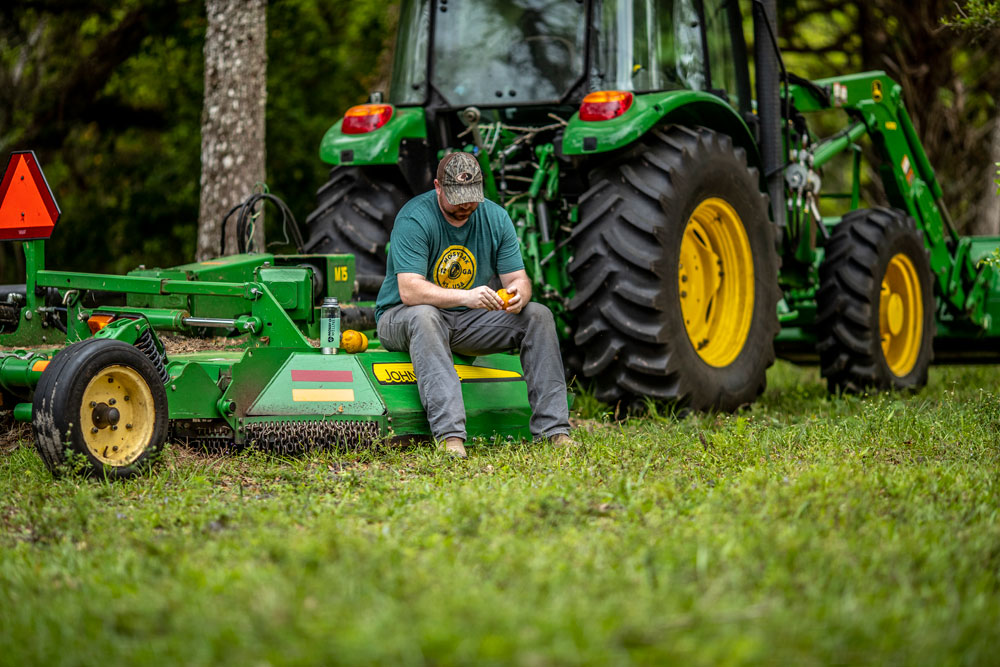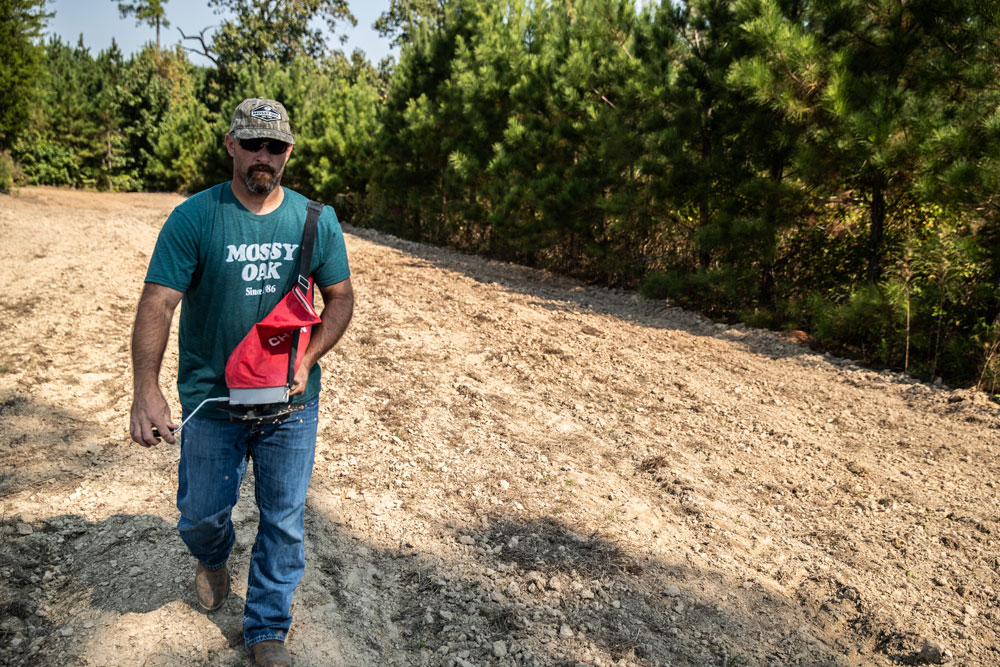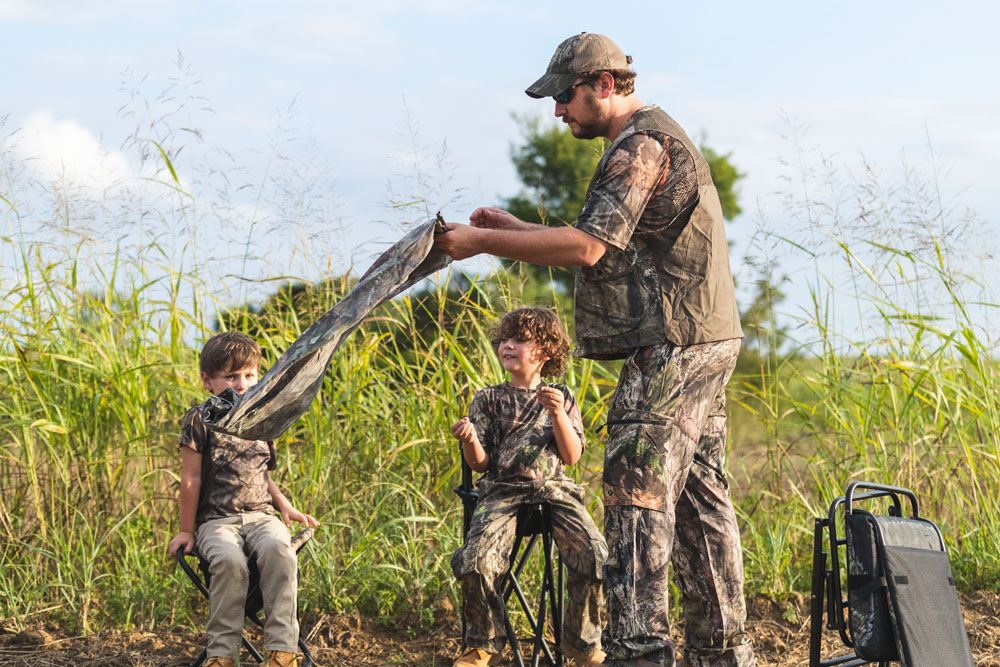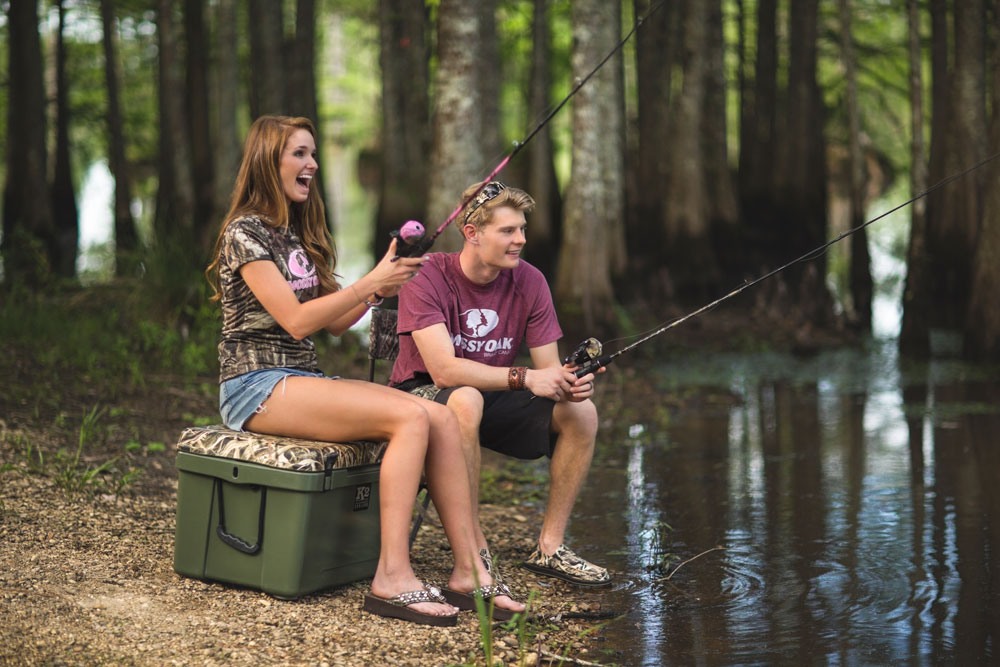Camping in the summer provides outdoor enthusiasts and novice campers a chance to spend time in nature and appreciate the magic of the season. From fireflies to cicadas, summer storms and chirping crickets at night, summer is a great time to get out of the house to experience the outdoors.
Summer camping does have its dangers. Sunstroke, sunburn and heat exhaustion are real hazards to the summer camper, so it is essential to know how to keep yourself and your family safe on hot summer days. It is necessary to take safety precautions to protect yourself from harmful UV rays and high temperatures when spending time outdoors.

Dangers of Summer Heat
Depending on your location, summer temperatures can reach the triple digits. Spending hours or days outdoors in this kind of heat can lead to heat emergencies, especially for those who have jobs working outdoors. The human body uses homeostasis to maintain a core temperature of 98.6℉. In hot weather, your body cools itself by sweating, lowering your internal temperature.
In hot, humid weather, especially when combined with too much activity, your body cannot regulate its core temperature and essentially overheats. Heat emergencies pose a severe threat to your health, so it is crucial to know the signs of a heat emergency and what to do if you experience one.
Heat Cramps
One of the first signs of a heat emergency is heat cramps. Heat cramps are signaled by tight muscles and muscle pain which typically occur when you exert yourself in the heat. You may experience heat cramps if you attempt hiking or playing a sport in hot weather.
Heat-related cramps are typically caused by dehydration and an electrolyte imbalance that causes your muscles to contract abnormally. Those most at risk for heat cramps are young children, the elderly, those who are overweight and those with alcohol in their system.
Heat Exhaustion
Heat exhaustion is more severe than heat cramps. It causes several symptoms, including dizziness, cramps, fast heart rate, fast breathing rate, mild confusion, headache, extreme thirst, pale skin, heavy sweating, fainting, irritability, nausea or vomiting.
Heatstroke
Heatstroke is the most severe of heat emergencies. It is a life-threatening condition that must be addressed immediately. Those with heatstroke may experience a body temperature of more than 104°F, a rapid, weak pulse, confusion, hallucinations, rapid, shallow breathing, seizures, dry skin and loss of consciousness.
How to Treat Heat Emergencies
To treat heat emergencies, it is advisable to take the following actions:
1. Call 911 if the person is experiencing vomiting, unconsciousness or seizures.
2. Get the victim out of direct sunlight and to a cooler area.
3. For heat cramps, gently stretch the affected muscle.
4. Apply cool, wet towels to their neck, chest, limbs and face.
5. For heatstroke, remove sweaty clothing and apply ice to wrists, groin and underarms.
6. Fan their skin.
7. Offer small sips of cool water every 15 minutes until symptoms fade.

Beat the Heat
You can take several preventative measures to ensure heat emergencies don’t affect you and your family while camping or working in the summer heat.
Stay Hydrated
Your best protection against heat emergencies is to stay hydrated. Drink plenty of cold, fresh water and replenish your electrolytes. Always avoid drinking alcohol during the hottest part of the day and limit your intake even in the cooler evening hours.
Rest Often
Heat emergencies are caused by too much physical activity in high heat. The problem is many people discover they’ve overexerted themselves after it is too late. The best action to take is no action at all. Rest often in the middle of the day when the temperature is highest, and plan any intense physical activity like hiking or mountain biking for earlier in the day or later in the afternoon.
Pick a Shady Spot
Pitch your tent in a shady spot. Shade helps keep you out of direct sunlight and allows your body to stay cooler. If you plan to walk or play a sport, do so in a shady area with lots of tree cover.
Avoid Confined Spaces
One of the most common causes of heatstroke is when people lounge in confined, poorly ventilated spaces. Temperatures increase in these areas and can easily put you at risk of a heat emergency. Avoid sitting in your tent or a cramped RV and instead sit outside in the cooler air or with a door or tent flap open.

Use Cooling Devices
Take advantage of modern cooling devices. Bring a battery-powered fan or use a cooling neck pillow. Bring a spray bottle and mist your face, neck, chest and limbs often. Misting mimics the body’s natural sweat response to cooling and helps you maintain a safe core temperature.
Dress Appropriately
Loose, light-colored clothing is the best option for hot weather. Loose clothing allows your body to regulate its internal temperature better because sweat can form on your skin and evaporate. There are also technologies in fishing or fitness apparel that will help keep the body cool. Dark clothing draws in heat from the sun, so wear light colors to stay cool.
Bring the Right Gear
When you go camping in the summer, make sure you have hot weather boots for your trip. You’ll want the necessary boots for hiking and potential mud, but you want to ensure your feet don’t overheat. Also, bring light-weight sleeping bags and tents with good ventilation for trips in those especially hot summer months.
Go for a Swim
If you are camped near a body of water that is safe to swim in, take a dip. The water can help keep your body cool. If you aren’t near water, consider bringing an inflatable pool and filling it so you can soak your feet to help you stay cool.

Enjoy Summer Camping Safely
Don’t let a trip to the emergency room due to heatstroke ruin your summer camping experience. Prepare for the heat by staying hydrated with water and electrolyte drinks, wearing cool clothing, staying in the shade and avoiding alcohol and strenuous activity. As long as you keep an eye out for heat emergency symptoms and address them accordingly, you and your family can beat the heat and enjoy the outdoors this summer.



























